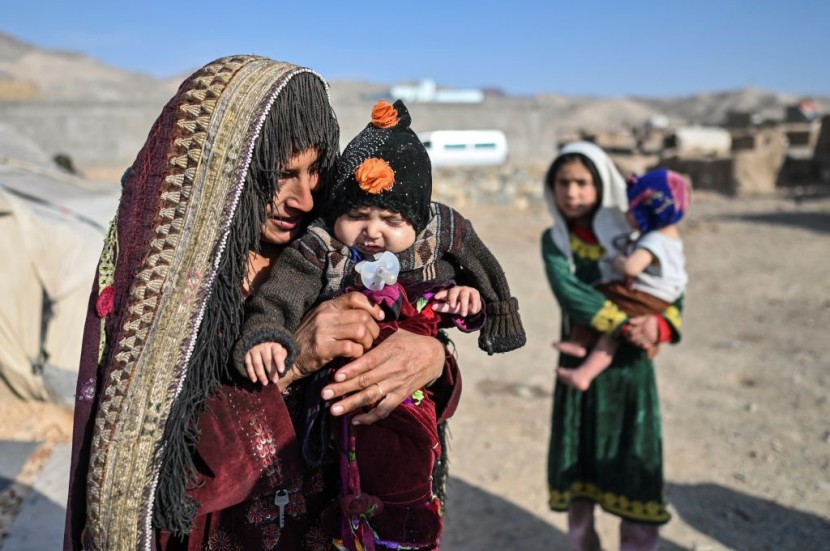
The economic and security crisis in Afghanistan has worsened since Zalmay Khalilzad's resignation as US special representative for Afghan reconciliation in October, following his failure to help the international community, reached a consensus on the Afghan peace process and the intra-Afghan dialogue reaching a stalemate.
As the new year begins, the political and economic gains won over the previous few decades owing to the Afghan people's enormous sacrifices that have continued to erode after the demise of the Afghan republic. The fall of the Ashraf Ghani administration has resulted in mass unemployment and terrible poverty, with private and state-owned banks running out of cash and the banking system on the verge of collapse.
Afghanistan faces political and economic crises
More than half of Afghanistan's population would go hungry, according to international humanitarian organizations. And, as inflation continues to climb unabated and the economy continues to deteriorate, global aid, which accounted for 75% of the previous government's budget, has dried up.
Following the Taliban's return to power, many men and women who were the breadwinners for their families have lost their employment and can be seen standing in front of bakeries in Kabul, hoping that someone will buy them a slice of bread. Per China Daily, many people are concerned about a lack of food and clothes, and the number of beggars in cities is increasing.
A lady is struggling to save her daughter in a large colony of mud-brick homes in western Afghanistan that shelters families displaced by drought and war. Aziz Gul's husband sold the 10-year-old girl without informing his wife, taking a down payment to sustain his family of five children.
They would all starve if they didn't have that money, he said. To save the others, he had to sacrifice one. As their country slides into a vortex of poverty, many of Afghanistan's rising number of poor people are making desperate decisions like these.
When the Taliban seized control in mid-August, amid a chaotic departure of US and NATO soldiers, the aid-dependent country's economy was already on the verge of collapse. The international world then froze Afghanistan's assets overseas and cut off all assistance, refusing to deal with a Taliban administration because of the Taliban's reputation for cruelty during its previous 20-year rule, ABC.net reported.
For a country that has been devastated by four decades of conflict, a harsh drought, and the COVID-19 pandemic, the repercussions have been terrible. Thousands of state employees, including physicians, have gone months without pay. Malnutrition and poverty afflict the most vulnerable, with relief organizations estimating that more than half of the population is facing severe food shortages.
Nations meet to discuss how to help Afghanistan
Islamic nations convened in late December to explore how to assist Afghanistan in avoiding economic collapse, which they said would have "horrendous" global consequences. The declaration was delivered during an emergency meeting of the Organization of Islamic Cooperation (OIC) in Islamabad, Pakistan, which concluded with a vow to create a fund to give humanitarian help through the Islamic Development Bank.
The meeting was also attended by Tom West, the United States' special representative for Afghanistan. On the fringes of the meeting, Pakistani Foreign Minister Shah Mahmood Qureshi presented what he believed was positive news from the United States, claims being that West met with the Taliban team, led by temporary foreign minister Amir Khan Muttaqi.
Qureshi pointed out that West stated that he was ordered to "engage" with the Taliban, that US humanitarian aid to Afghanistan would not be conditional, and that the World Bank might make $1.2 billion accessible to Afghanistan.
The US did not respond to Qureshi's remarks right away. Hundreds of foreign ministers, as well as special officials for Afghanistan from major nations such as China, the United States, and Russia, attended the summit. Several participants urged for the rapid reopening of Afghanistan's financial sector as well as aid at the outset of the summit.
Imran Khan, Pakistan's prime minister, has encouraged the United States to cease its demands for the restoration of Afghanistan's financial institutions and the release of badly needed finances. He also encouraged the international community to recognize "cultural sensitivities," noting that human rights and women's rights are defined differently in various nations, as per Big News Network.
Related Article : UN Warns of Devastating Afghanistan Economy; 'Children Are Going To Die' Officials Say
@YouTube
© 2026 HNGN, All rights reserved. Do not reproduce without permission.








